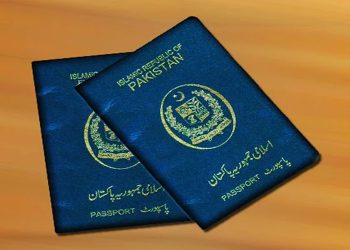ISLAMABAD: Prime Minister Imran Khan has asserted that the increase in remittance rate in the country this financial year is a record in the history of the country and for this, he is grateful to the Pakistanis living overseas.
The prime minister took to Twitter and wrote that remittance sent by overseas Pakistanis were 2.27 billion in January, remittances are 19 percent higher than 2020, remittances are more than two billion for eight consecutive months.
Remittances from overseas Pakistanis were $2.27 bn in Jan, up 19% over Jan 2020 – 8th consecutive month of remittances above $2b. To date in this fiscal year they are up 24% compared to last yr. This is a record for our country and I thank our overseas Pakistanis.
— Imran Khan (@ImranKhanPTI) February 15, 2021
“Remittances from overseas Pakistanis were $2.27 bn in Jan, up 19% over Jan 2020 – 8th consecutive month of remittances above $2b. To date in this fiscal year they are up 24% compared to last yr. This is a record for our country and I thank our overseas Pakistanis,” he tweeted.
Workers’ remittances exceeded $ 2.0 billion for the eighth consecutive month and amounted to $2.3 billion in January 2021, up by 19 percent over January 2020. However, remittances remained slightly lower from the December 2020 level of $2.4 billion.
Read more: Dr. Moeed urges to promote blue economy for national development
On a cumulative basis, workers’ remittances reached $16.5 billion from July to January FY21, registering a 24 percent increase over the same period last year. A large part of workers’ remittances during July to January FY21 was sourced from Saudi Arabia ($4.5 billion), United Arab Emirates ($3.4 billion), United Kingdom ($2.2 billion), and United States ($1.4 billion).
This sustained increase in workers’ remittances largely reflects the growing use of banking channels that is attributed to continuous efforts by the government and SBP to attract inflows through the official channels, limited cross-border travel amid the second wave of COVID-19, and a flexible exchange rate regime.





































